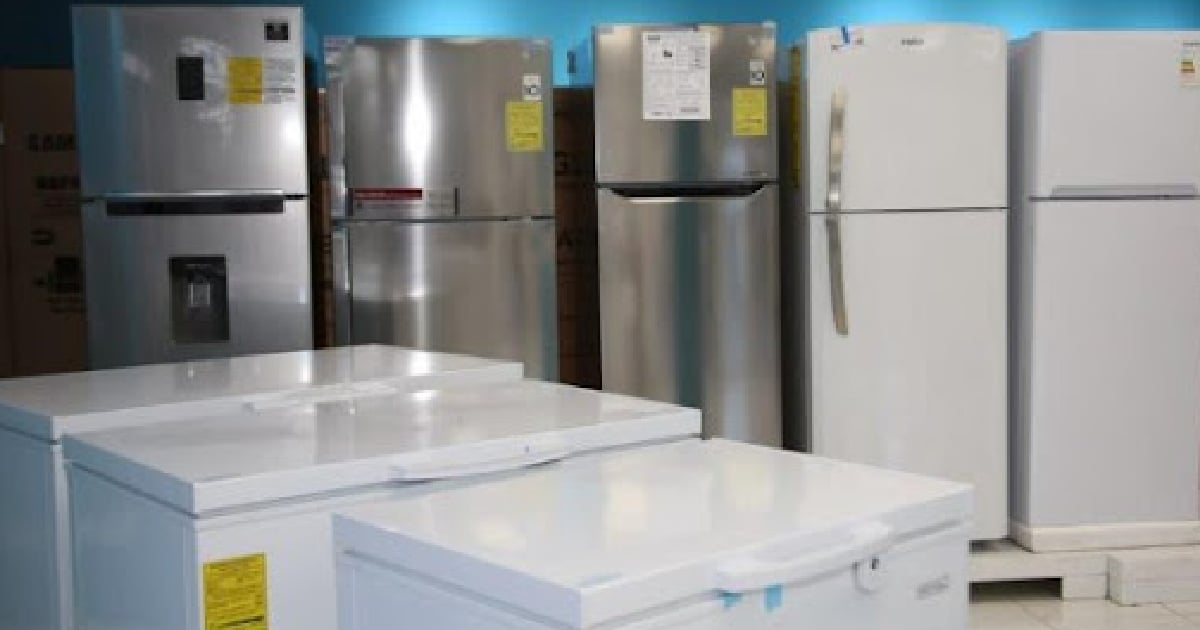The Cuban government is set to restrict the importation of high-energy-consuming appliances for legal entities and commercial purposes amid ongoing power outages caused by a deficit in electricity generation that the regime has failed to resolve. The National Office for the Control of Rational Use of Energy (Onure) is preparing a new resolution to prohibit the entry of goods with high electricity consumption, as reported by the official newspaper Granma.
According to Onure's senior specialist, René Martín Páez, this new government measure aims to regulate the appliances that can be imported and sold in the country, particularly in Tiendas Caribe, Cimex, and Palco stores, as well as in micro, small, and medium-sized enterprises, known as MIPYMES. Martín Pérez mentioned that the goal is to contribute substantial savings to the National Electrical System and the economy of consumers.
The specialist provided data to support his claim, stating that if the population switches from resistance stoves to induction stoves, the country could save 760,000 tons of fuel annually and prevent the emission of 2.3 million tons of carbon dioxide. Additionally, he argued that LED lights have the potential to save 200,000 tons of fuel and avoid 600,000 tons of carbon dioxide emissions annually, across the entire island's consumption. LED lights consume 35-40% less energy than fluorescent lamps and have a lifespan at least five times longer.
The various stages of the energy crisis that Cuba has faced for years have led the government to take improvised measures to mitigate the impact on the population. Despite these efforts, prolonged power outages remain a common complaint among Cubans.
In 2021, the General Customs of the Republic of Cuba issued Resolution 273/2021, published in the Official Gazette, authorizing the importation of high-energy-consuming appliances for individuals without commercial intent, amidst an energy crisis that also sparked the historic July 11th protests of that year.
A year later, the Ministry of Finance and Prices (MFP) published Resolution 218/2022, allowing the importation of higher-powered electric generators previously restricted by the General Customs. This provision exceptionally authorized the importation, without commercial purpose, of electric plants exceeding 900 watts, which could be cleared by the General Customs until December 31, 2022. This measure has recently been extended until September 30, 2024.
In 2022, during a meeting with the top authorities of Holguín, it was reported that Prime Minister Manuel Marrero sent a document with measures to reduce electricity demand, including regulating the importation of compact incandescent lights and resistance electric stoves.
The energy crisis in Cuba has intensified in recent years, characterized by extended blackouts lasting over 15 hours in some provinces. Authorities, unable to find a permanent solution, often cite "scheduled maintenance," but some experts believe the crisis is structural. The main causes of the blackouts are the lack of investment and maintenance in the electrical infrastructure, dependence on imported fuels for energy generation, and fuel shortages.
Understanding Cuba's Energy Crisis and Import Restrictions
This section addresses common questions related to Cuba's new import restrictions on high-energy appliances and the broader energy crisis affecting the country.
Why is Cuba imposing new import restrictions on high-energy appliances?
The Cuban government aims to reduce electricity consumption and save fuel, as the country faces an ongoing energy crisis marked by frequent power outages.
What types of appliances are affected by the new import restrictions?
The restrictions mainly target high-energy-consuming appliances such as resistance stoves and certain types of lighting, like compact incandescent lights.
How will these restrictions impact small businesses (MIPYMES) in Cuba?
Small businesses will face limitations on the types of appliances they can import and sell, potentially affecting their operations and profitability.
